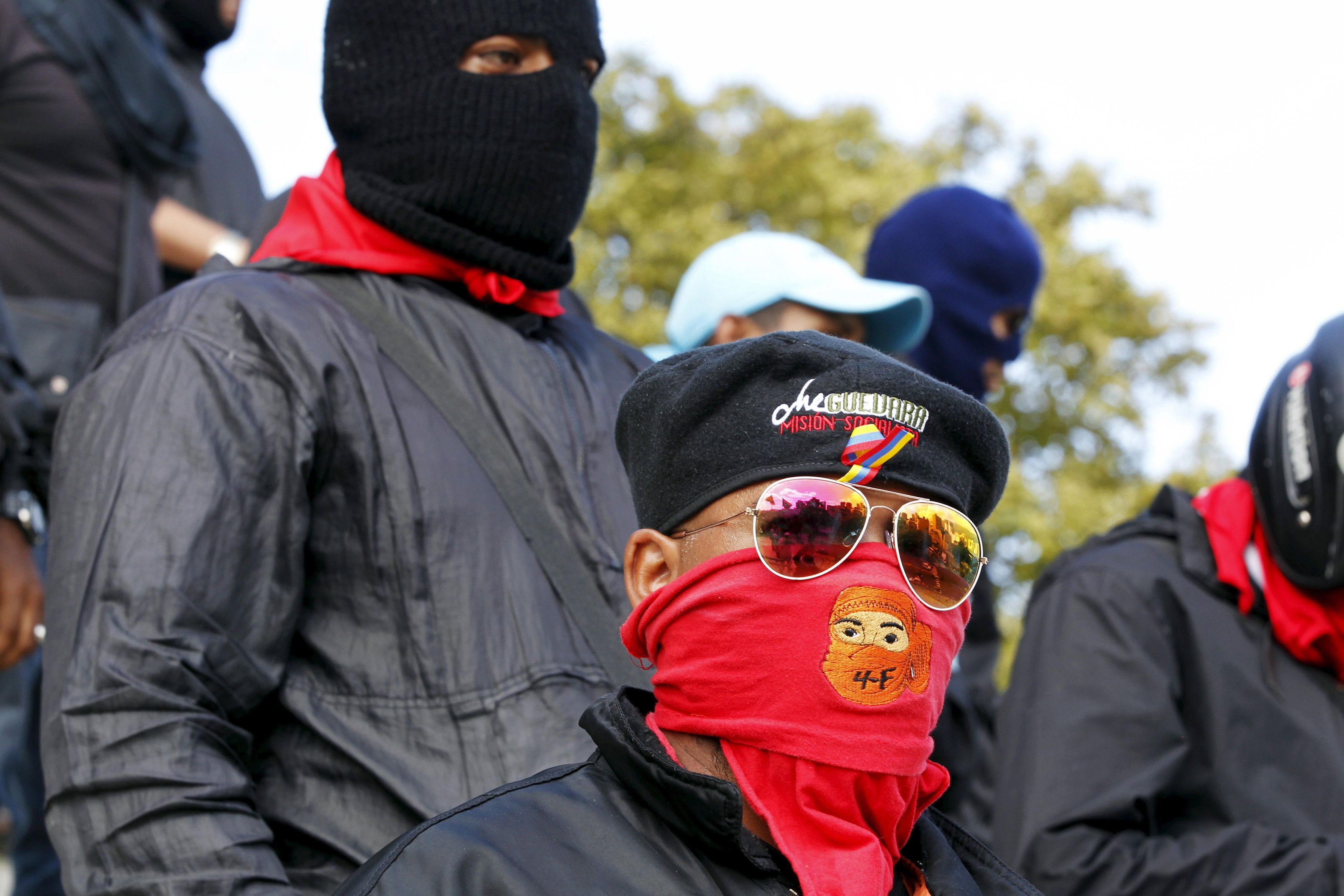February 05, 2019
The high drama of Venezuela's political crisis continues to center on the rival claims to power of National Assembly President Juan Guaido and President Nicolas Maduro.
But while resolving the current standoff over who controls the national government is critical, finding any prosperous and stable path forward for Venezuela will also require taming the myriad irregular, criminal, and non-state groups that control local territory and illicit industries across the country.
There are many such groups operating in Venezuela today – often with overlapping allegiances and activities. Broadly speaking, they fall into three groups:
First, there are those directly co-opted by the state. Well-armed neighborhood criminal gangs called colectivossuppress anti-regime dissent in the capital, Caracas. These groups work with other quasi-official repression squads that the government has created as an insurance policy against the fickle loyalties of rank and file soldiers and police officers.
Second there are regional criminal syndicates who control vast illegal mining and drug trafficking industries, particularly in the East, operating in cahoots with local or national officials, as well as with transnational crime networks.
Third, there are outside militants: the most formidable of which are Colombian rebels from the ELN – that country's largest remaining narcotrafficking insurgent group – which the Chavista regime has long sheltered and supported. Last month, the ELN claimed responsibility for the bombing of a police academy in the Colombian capital that killed 21 cadets -- the bomber belonged to a unit reportedly commanded from within Venezuela.
Even if a resolution of the standoff between Messrs. Guaido and Maduro is possible, all of these groups will be angling to expand their positions and exploit the local power vacuums created by a shifting national political dynamic. As a result, any new government, and the military loyal to it, will quickly have to contend with these groups' capacity to wreak havoc.
The worst outcome would be a badly patchworked Venezuela in which the writ of central authority (or competing authorities) is fragmented throughout the country, opening the way to further violence and instability.
The bottom line: As the high drama in Caracas unfolds, keep an eye on these irregular, non-state players whose prerogatives, power, and loyalties will be critical in shaping Venezuela's future.
From Your Site Articles
More For You
The French President Emmanuel Macron (R) welcomes the European Commission President Ursula von der Leyen (L) at the Elysee Presidential Palace.
SOPA images
European Union leaders agreed to move ahead with “Buy European” policies as part of a broader push to de-risk from the US and boost competitiveness amid China’s industrial prowess.
Most Popular
Think you know what's going on around the world? Here's your chance to prove it.
PA via Reuters Ukraine's Vladyslav Heraskevych, with his helmet, which features pictures of people killed in the war with Russia. Heraskevych was ruled out of the Men's Skeleton event by the International Olympic Committee just over an hour before competition began, pictured at the Cortina Sliding Centre, on day six of the Milano Cortina 2026 Winter Olympics, Italy. Picture date: Thursday February 12, 2026.
20: The number of fallen Ukrainian athletes and coaches depicted on a Ukrainian skeleton racer’s helmet at the Winter Olympics, which prompted the International Olympic Committee (IOC) to disqualify him on Thursday.
Russian President Vladimir Putin attends his annual end-of-year press conference and phone-in in Moscow, Russia December 19, 2025.
Sputnik/Alexander Kazakov/Pool via REUTERS
The Russian government has begun blocking the popular messaging apps WhatsApp and Telegram in a sweeping crackdown aimed at forcing Russians to use a state-backed alternative called MAX, which critics say would enable censorship and surveillance.
© 2025 GZERO Media. All Rights Reserved | A Eurasia Group media company.
